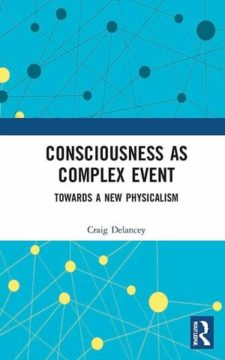Kelvin J. McQueen at Notre Dame Philosophical Review:
 In Consciousness as Complex Event: Towards a New Physicalism, Craig DeLancey argues that what makes conscious (or “phenomenal”) experiences mysterious and seemingly impossible to explain is that they are extremely complex brain events. This is then used to debunk the most influential anti-physicalist arguments, such as the knowledge argument. A new “complexity-based” way of thinking about physicalism is then said to emerge.
In Consciousness as Complex Event: Towards a New Physicalism, Craig DeLancey argues that what makes conscious (or “phenomenal”) experiences mysterious and seemingly impossible to explain is that they are extremely complex brain events. This is then used to debunk the most influential anti-physicalist arguments, such as the knowledge argument. A new “complexity-based” way of thinking about physicalism is then said to emerge.
Brain complexity has been appealed to before, to try to explain why consciousness seems so intractable. What makes DeLancey’s approach distinctive is two-fold. First, DeLancey does not use some vague and informal notion of complexity. Instead, he uses the formal notion of Kolmogorov complexity, which he refers to as descriptive complexity. Second, this notion is intended to do most of the heavy lifting. In particular, DeLancey is clear that he does not wish to supplement his complexity-based defense of physicalism with other existing strategies (the phenomenal concepts strategy, the ability hypothesis, knowledge by acquaintance etc. (23)). The central claim is that “what makes a phenomenal experience mysterious is its [descriptive] complexity” (21).
more here.
